Corn Planters with 4 Rows: A Specialized Agricultural Tool
A corn planter with 4 rows is a specialized agricultural implement designed to efficiently sow corn seeds in a four-row pattern. These machines cater to farmers and agricultural workers seeking to maximize productivity and yield per acre by planting multiple rows of corn in a single pass. The design of these planters includes a series of row units, usually ranging from two to four, mounted on a tool bar that can be attached to a tractor.
The functionality of a 4-row corn planter relies on the synchronized operation between the tool bar and the tractor's hydraulic system. As the tractor advances, the planter's tool bar moves accordingly, guiding the row units into the soil at the desired depth and spacing while simultaneously depositing the seeds. The precision and consistency provided by these planters play a crucial role in ensuring optimal seed germination and growth.
Compared to traditional manual planting methods, corn planters with 4 rows are preferred for their efficiency and speed. They can cover a significant area in less time with reduced labor requirements, proving particularly advantageous for large-scale farming operations. Additionally, these planters often come equipped with advanced features such as GPS guidance systems and variable-rate planting technologies, enabling more precise seed placement and efficient resource utilization.
Diversity in Types of 4-Row Corn Planters
The market offers a diverse selection of 4-row corn planters tailored to meet various needs and applications, with each type designed to address specific requirements:
-
Rear-Tine Corn Planters: These planters have a seed hopper and planting mechanisms at the rear, making them ideal for smaller operations or hobby farming. Known for their maneuverability and ease of transport, they are commonly used for planting corn and other large-seeded crops.
-
Front-Tine Corn Planters: Front-tine planters place the seed and fertilizer in front of the disk, offering enhanced precision. They are suitable for larger commercial farms prioritizing efficiency.
-
Twin-Row Corn Planters: These planters sow two rows of seed simultaneously, particularly advantageous for crops like sweet corn where twin rows optimize space usage and increase yield potential.
-
Push-Row Corn Planters: Designed to be manually pushed across the field, these planters are suitable for small-scale or home farming, providing a cost-effective planting solution without the need for motorized equipment.
Each type caters to specific use cases concerning row spacing, seed depth, and the seed size being planted. For instance, rear-tine planters are valued for their versatility across different conditions, while front-tine planters are preferred for their accuracy in high-yield commercial environments.
Choosing the Right 4-Row Corn Planter
Selecting the appropriate corn planter for your business entails considering several factors aligned with your operational needs and production objectives. Here are key considerations for businesses when procuring corn planters:
-
Scale of Operation: Evaluate the size of your operation and production scale. Smaller farms or those diversifying may opt for single-row planters for easier management, while larger operations may require robust machinery like 4-row planters for increased capacity.
-
Field Conditions: Account for soil types and field conditions where you operate. Adjustable seed depth settings and row spacing capabilities may be necessary for areas with varying soil moisture levels or crop rotations.
-
Seed Variability: Ensure the planter can accommodate different seed sizes and varieties, with some models specialized for specific hybrids or small seeds, offering varying levels of flexibility.
-
Compatibility with Tractors: Verify the planter's compatibility with your tractors in terms of power output and hitch requirements to ensure seamless integration into your existing setup.
-
After-sales Service: Given the investment involved, seek suppliers offering comprehensive after-sales support such as video technical assistance or field maintenance services to keep your equipment operational.
The Role of Alibaba.com in Providing 4-Row Corn Planters
Alibaba.com serves as a vast marketplace connecting businesses with numerous suppliers offering a wide range of agricultural machinery, including 4-row corn planters. Emphasizing variety and adaptability, Alibaba.com grants businesses access to a global array of farm equipment tailored to specific needs without geographical constraints.
Suppliers on Alibaba.com cater to bulk buyers and those seeking individual units of high-value agricultural equipment. The platform's user-generated content aids buyers in evaluating products and reviewing machinery test reports provided by suppliers, facilitating informed purchasing decisions based on understanding product capabilities and limitations.
Moreover, Alibaba.com's Trade Assurance service enhances buyer confidence by securing payments until delivery confirmation. With over two decades of experience fostering B2B trade relationships globally, Alibaba.com stands as a reliable source for quality corn planters suitable for diverse applications – from small-scale farming to large commercial ventures.
Frequently Asked Questions about 4-Row Corn Planters
Distinguishing Between 1-Row and 4-Row Corn Planters
A 1-row corn planter suits smaller operations like gardening, while a 4-row corn planter is ideal for larger agricultural settings requiring speed and efficiency in planting.
Adaptability of Corn Planters for Various Crops
Yes, corn planters can be adjusted to accommodate different seed types, making them versatile for planting various crops beyond corn.
Benefits of Tractor-Mounted Corn Planters
Tractor-mounted corn planters offer increased efficiency and precision in field planting, covering more area quickly compared to manual methods.
Considerations for Choosing a Corn Planter
Factors to consider include the types of corn to be planted, operational scale, tractor compatibility, local service availability for maintenance, and features such as variable row spacing.
Determining Optimal Row Spacing for Corn Planters
Optimal row spacing depends on crop planting requirements, and consulting local agricultural resources or experts can provide guidance on the best spacing.
Customizable Row Spacing in Corn Planters
Many suppliers offer corn planters with adjustable row spacing features to customize planting according to specific needs and crop requirements.
After-Sales Support for Corn Planters
After-sales support varies by supplier and may include online assistance, video support, and maintenance services, underscoring the importance of confirming available support before purchase.
Choosing Climate and Soil-Friendly Corn Planters
Suppliers offer a range of corn planters suitable for diverse climates and soil conditions, necessitating research to align the planter with local environmental factors for successful planting.
Commercial vs. Home Gardening Corn Planters
Commercial-use corn planters are tailored for higher productivity, durability, and additional features suited to industrial farming, distinguishing them from those designed for home gardening.
Key Components in Selecting a Corn Planter
Core components like gearboxes, bearings, engines, PLCs, and pressure vessels are critical for the efficiency and longevity of a corn planter and warrant attention during selection.
Environmentally Friendly Options in Corn Planters
Suppliers may offer environmentally friendly options like no-till or minimum till planters that reduce soil disturbance, preserve soil health, and support effective planting.
Impact of Local Service Location on Corn Planter Selection
Considering the local service location is crucial as it can affect shipping costs, delivery times, and access to after-sales support, influencing the decision-making process in balancing supplier offerings.









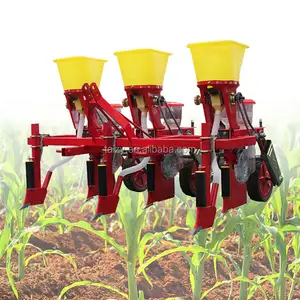



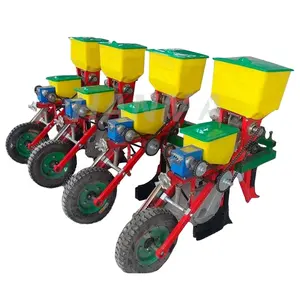


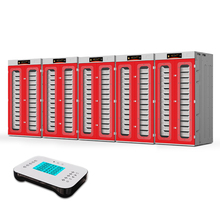
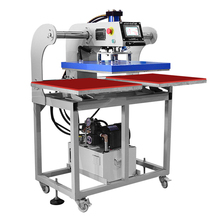
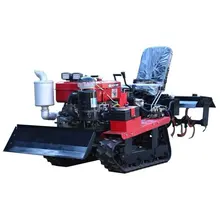




























 浙公网安备 33010002000092号
浙公网安备 33010002000092号 浙B2-20120091-4
浙B2-20120091-4